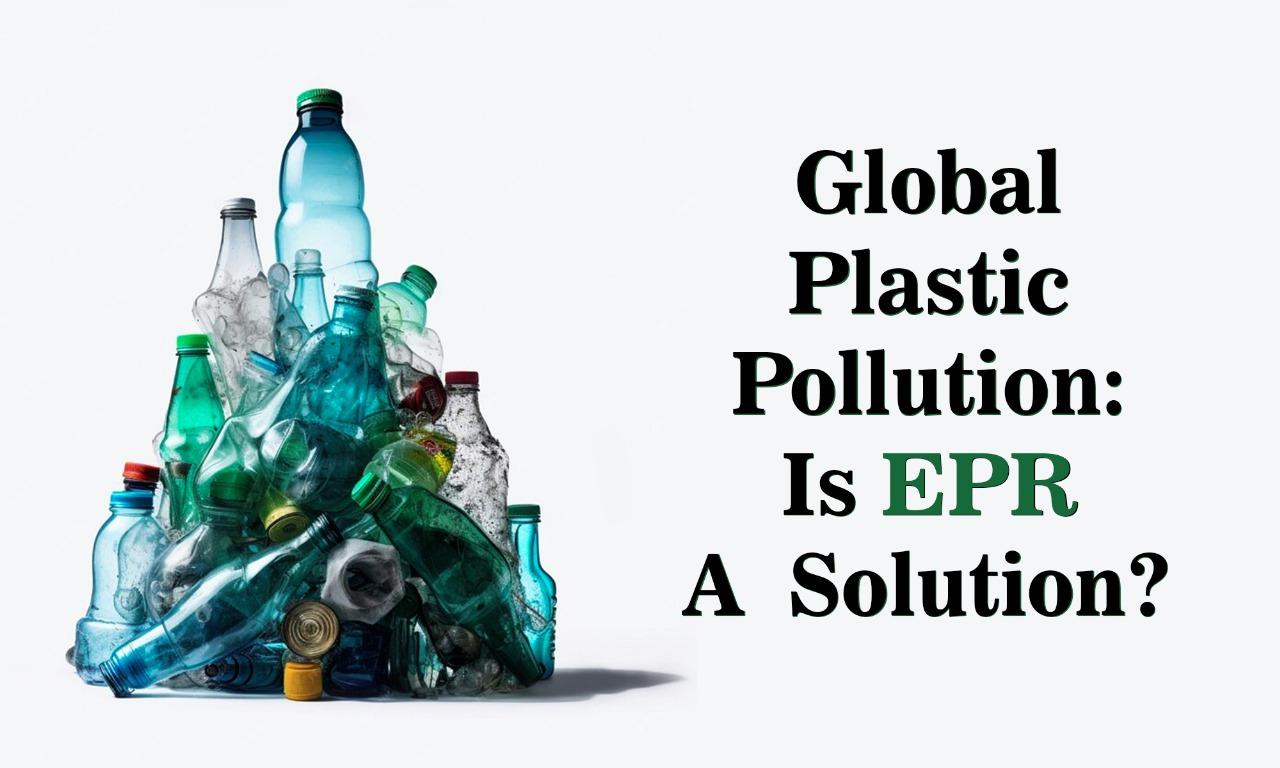In a world driven by convenience, plastic has become an integral part of our daily lives. From packaging materials to single-use items, its versatility is unmatched. However, the convenience comes at a cost — a cost that our planet is paying dearly. Plastic pollution has reached alarming levels, causing severe environmental damage. One potential solution gaining traction is Extended Producer Responsibility (EPR).

Understanding the Plastic Problem
Plastic pollution is a global crisis that transcends borders and affects ecosystems, wildlife, and human health. The sheer volume of plastic waste, much of it non-biodegradable, poses a significant threat to the environment. Plastic debris clogs our oceans, harms marine life, and contaminates our soil. It's estimated that by 2050, there will be more plastic in the ocean than fish if we don't take decisive action.
What is Extended Producer Responsibility (EPR)?
Extended Producer Responsibility is a concept aimed at shifting the burden of plastic waste management from governments and taxpayers to the companies that produce and sell plastic products. The idea is simple: those who create plastic products should be responsible for the entire lifecycle of those products, from production to disposal.
How Does EPR Work?
EPR places the onus on producers to manage and finance the recycling and proper disposal of their products. This can include designing products for recyclability, establishing take-back programs, and contributing financially to waste management systems. The goal is to create a closed-loop system where producers have a vested interest in ensuring their products are recycled and do not end up as pollution.
The Success Stories of EPR
Several countries have already implemented EPR programs with promising results. For instance, in Germany, the Green Dot system requires manufacturers to participate in a dual recycling system, significantly increasing recycling rates. Taiwan's EPR program has transformed the island nation into a recycling leader, with stringent regulations and fines for non-compliance.
Challenges of EPR Implementation
While EPR holds promise, its successful implementation faces challenges. Companies may resist the additional financial burden, and there's a need for robust enforcement mechanisms to ensure compliance. Additionally, educating consumers about proper disposal and recycling practices is crucial for the success of EPR initiatives.
Why EPR Matters
- Encourages Sustainable Design: EPR encourages companies to design products with recycling in mind. This shift towards sustainable design can reduce the environmental impact of plastic products.
- Reduces the Burden on Landfills: By holding producers responsible for the entire lifecycle of their products, EPR aims to decrease the amount of plastic waste sent to landfills, promoting a more sustainable waste management system.
- Promotes Circular Economy: EPR fosters the transition from a linear economy (make, use, dispose) to a circular one, where products are designed for reuse and recycling, minimizing the extraction of new resources.
- Alleviates the Financial Strain on Governments: EPR provides an alternative funding source for waste management, reducing the burden on governments and taxpayers. This allows for more effective and widespread recycling programs.
The Role of Consumers
While EPR places responsibility on producers, consumers also play a crucial role. Choosing products with minimal packaging, opting for reusable items, and properly recycling are actions that support the success of EPR initiatives. Consumer awareness and participation are key to the overall effectiveness of tackling plastic pollution.
Conclusion: A Shared Responsibility
As we confront the global plastic pollution crisis, Extended Producer Responsibility emerges as a potential solution with the power to shift the dynamics of plastic production and consumption. However, its success hinges on collaborative efforts. Governments, businesses, and consumers must work together to create a sustainable future where plastic no longer poses a threat to our planet. EPR offers a step in the right direction, but its full potential can only be realized through a collective commitment to reducing, reusing, and responsibly managing plastic waste
